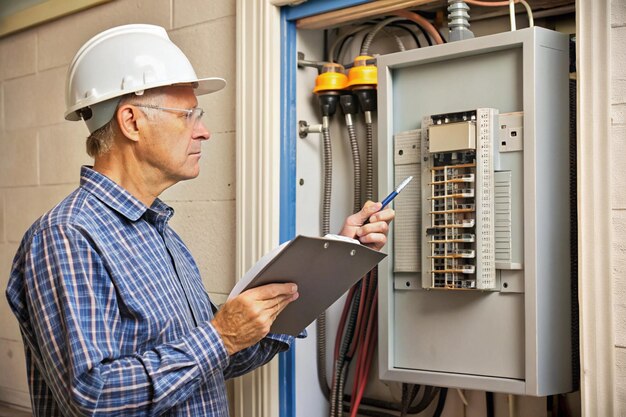What Does It Cost to Run a Refrigerator Each Month?
When you think about daily household essentials, your refrigerator is undoubtedly near the top of the list. But have you ever paused to consider how much this indispensable appliance costs to run each month? Understanding the monthly operating expenses of a refrigerator can help you better manage your energy bills and make informed decisions. Let’s explore the financial aspect of owning a refrigerator, delve into factors that influence energy consumption, and offer practical tips for maximizing efficiency.
Understanding Refrigerator Energy Consumption
How Refrigerators Consume Energy
Refrigerators work by using a compressor to move refrigerant through coils inside and outside the appliance. This cooling cycle requires electricity, which forms the basis of a refrigerator's energy consumption. Factors such as the temperature setting, frequency of door openings, and the ambient room temperature can all affect energy use.
Efficiency Standards and Energy Star Ratings
Modern refrigerators are more energy-efficient than older models, thanks to technological advancements. Appliances with an Energy Star rating typically use less electricity, translating to lower energy costs. Understanding these ratings can help homeowners specify appliances that offer energy savings.
Average Energy Use and Costs
On average, most modern refrigerators consume between 100 to 800 kilowatt-hours (kWh) per year. But what does that mean for your monthly expenses? Average electricity rates can vary, but the cost to run a refrigerator generally lands somewhere between $5 and $20 per month. Knowing your local electricity rate can help you estimate your exact expenses.
Factors Influencing Refrigerator Costs
Size and Type of Refrigerator
The refrigerator's size significantly impacts its energy consumption. Larger models, such as side-by-side or French door refrigerators, typically use more power than smaller top- or bottom-freezer configurations. Being mindful of your household's actual needs and avoiding oversize models can help control expenses.
Age and Condition of Appliance
Older refrigerators, particularly those over a decade old, might not be as efficient as newer models. Wear on seals, outdated compressors, and other factors can lead to increased energy usage. While they may still work, older models could be costing you more than you think.
Usage Patterns
How and when you use your refrigerator also affects its costs. Frequently opening the fridge door allows warm air in and causes the compressor to work harder to maintain a stable temperature. Practicing mindful usage by closing the door quickly and keeping your fridge stocked can help minimize unnecessary energy consumption.
Practical Tips for Reducing Refrigerator Costs
Optimize Temperature Settings
Keeping your refrigerator at the recommended temperature of 37-40°F (2.8-4.4°C) and your freezer at 0°F (-18°C) ensures efficient operation without overburdening the compressor. It strikes a balance between food safety and energy saving.
Regular Maintenance and Cleaning
Simple maintenance tasks, such as cleaning the coils on the back or bottom of the unit and ensuring the seals around the door are intact, can improve efficiency. Removing dust and ensuring proper airflow give your refrigerator better performance for less energy.
Energy-Saving Settings
Leveraging energy-saving modes, where available, can contribute to reduced costs. These settings adjust internal temperatures during less active periods, ensuring the refrigerator works smarter, not harder.
Common Misconceptions Surrounding Refrigerator Costs
Turning Off to Save Costs
Some believe turning off refrigerators for extended periods, particularly during vacations, can save money. However, this could lead to spoiled food and may not always be practical. Instead, consider adjusting the temperature or using vacation mode if your model supports it.
Newer Equals More Savings
While newer models are generally more energy-efficient, don't assume that every new fridge will drastically cut costs. Evaluating the Energy Star rating and specific power usage of a model is crucial in making an informed choice.
Visual Summary: Key Tips for Refrigerator Efficiency 📝
- 🔌 Prioritize Efficiency: Opt for Energy Star-rated models.
- 📏 Size Consideration: Buy the refrigerator size that fits your needs.
- 🌡️ Optimize Settings: Maintain optimal temperature settings for efficiency.
- 🧼 Regular Maintenance: Clean coils and check door seals for better performance.
- 🤫 Mindful Usage: Minimize door openings to maintain temperature.
Planning for Replacement: When Should You Upgrade?
Signs Your Refrigerator Is Increasing Your Bills
If you're noticing a spike in your utility bills, an aging refrigerator might be the culprit. Unusual noises, condensation buildup, or insufficient cooling can be indicators that it's time for a replacement. Evaluate ongoing costs against the investment required for a new, efficient model.
Choosing the Right Model
When exploring options for a new refrigerator, consider not just the purchase price but the lifetime operating costs. A unit with a slightly higher upfront cost may offer substantial savings in the long run through reduced energy consumption.
Financing and Cost Considerations
Evaluate whether financing options or off-peak sales could make the purchase of a new model more affordable. Additionally, consider the potential resale value of working models you might be replacing. With these strategies, transitioning to a new refrigerator can be cost-effective and responsible.
Bringing it All Together: Managing Monthly Refrigerator Costs
Refrigerators are essential yet often overlooked components of household energy use. By understanding the nuances of refrigerator efficiency and implementing cost-saving strategies, you can effectively manage your monthly expenses. Investing time in researching and maintaining your unit ensures longevity and optimal performance, freeing you from unnecessary financial burdens.
Adopting mindful refrigerator usage and exploring modernization opportunities can provide you with more than just a reliable appliance. It ensures that your home benefits from the right blend of comfort, ease, and economic efficiency.

